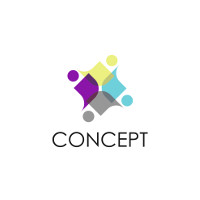Moral Obligation, Epistemology and Public Health: The Case of Vaccine Hesitancy
The WHO lists vaccine hesitancy as a top ten global threat. This project looks at vaccine hesitancy as an understudied problem at the intersection of ethics and epistemology. The goal is to develop a framework for assessing both the moral and epistemic dimensions of vaccine hesitancy, to improve our understanding of the moral and epistemic risks associated with medical misinformation, and to develop recommendations for the improvement of vaccine science communication.
Project description
This project considers vaccine hesitancy as the expression of understudied problems at the intersection of ethics and epistemology.
First, there is the problem of free-riding. The vaccine hesitant tend to want maximal amounts of evidence of vaccine safety. While demanding as much evidence as possible may be an epistemological virtue, in the case of vaccine hesitancy it may turn out to be a moral vice. By not deferring to the standards of evidence set by the public health experts, vaccine sceptics may engage in free-riding (John 2011). A ‘free-rider’ is someone who receives some benefit from a system of social co-operation but refuses to contribute to the maintenance of the system which generates that benefit. Widespread refusal to contribute to maintenance of the system would mean that no one could enjoy the relevant benefit. Being vaccinated involves some costs, such as the exposure to risk of adverse reaction. Nonetheless, an individual not vaccinated in a community where everyone else is, still benefits from protection by herd immunity, so there will be no cost for a single individual of not being vaccinated. If an individual refuses to be vaccinated for no good reason, they enjoy the benefit of being vaccinated without paying the involved cost: hence, they are free-riding.
A second problem concerns expertise. Living in a world of increasing specialization, deference to experts is integral to even the most mundane activities. But which experts should one trust? How are medical knowledge and power related? How are we to distinguish between science for the people and science for corporate interests? When is it more rational to think for oneself than to defer to the relevant expert? What is the rational thing to do when one realizes that one’s own views disagree with those of the experts? These questions become particularly relevant when knowing whom or what to believe may make the difference between one’s own survival and death, or the survival and death of one’s children or other dependent relations. Vaccination-compliance is only a special case of the problem of whether to believe medical advice and, if so, which medical advice. It is complicated in the Covid-19 case by the growing practice of getting one’s factual information from the Internet, and by the existence of large amounts of relevant misinformation online, some distributed by those who think that Covid-19 is a hoax. A further special feature of vaccine compliance as opposed to compliance with patient-
specific medical advice, is that the consequences of non-compliance are felt not only by those who opt out but also by those who take the vaccine if not enough others do.
Third, there is the problem of trust in science and politics. Trust is indispensable to our everyday lives, yet it can be dangerous. If we don’t trust others, we cannot function in society, but being overly trusting can leave us open to exploitation and abuse. And not only is trust pragmatic, but it also has a moral dimension: trustworthiness is a virtue, and well-placed trust often benefits us all. An undertheorized aspect of vaccine hesitancy is its relation to the ongoing crisis of trust in the political and social arena. Politicians are often held in contempt or distrusted by the public at the best of times: how can they be trusted to handle emergencies competently? There is increasing evidence of a correlation between political affiliation and hesitancy, with those on the right distrusting vaccines more, e.g. in France (COCONEL Group 2020). How should the knowledge communication between experts and laypersons be designed so that it does not fail due to barriers of understanding and merchants of doubt? A successful communication strategy must take account of normal lay ignorance of virology and epidemiology as well as beliefs about the status of experts, the rights of parents, when they decide on vaccines for children and the elderly, and the conditions under which lay people are required to defer to expert opinion while exercising the right and perhaps the obligation to think for themselves and make their own choices.
Objectives
- To explain connection between the moral requirements of public health emergencies and the strength of public health obligations
- To improve understanding of what is rational and reasonable in vaccine hesitancy
- To evaluate the moral risks associated with misinformation in a public health emergency
- To assess the moral risks associated with misinformation filtered by anti-expert, anti-government social media in a public health emergency
- To improve understanding of the relation between autonomy for patients and possible civic duties that flow from public heath
- To develop recommendations for the improvement of vaccine communication
- To develop a rubric for assessing the communication about infection and risk of serious illness and
- To explore the connections between vaccine scepticism and parents’ rights and libertarianism
Research topics
-
The Ethics of Vaccine Acceptance
-
Issues in Vaccine Science Communication
Project members
German PI: Prof. Sven Bernecker, University of Cologne
UK PI: Prof. Tom Sorell, University of Warwick
Dr. Teresa Yolande Branch-Smith, University of Cologne
Dr. John Guelke, University of Warwick
Dr. Lynn Williams, University of Strathclyde
Alex Krasodomski, DEMOS
